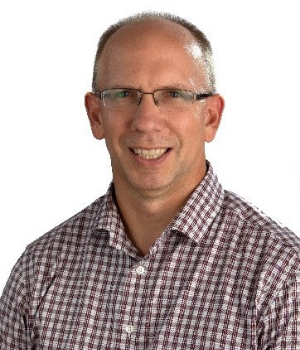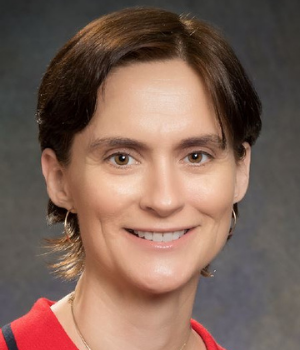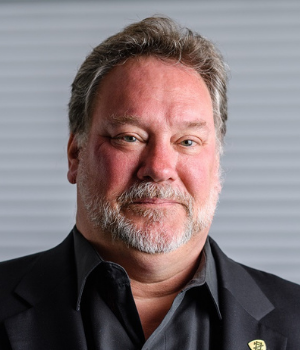We asked executives the following question: What is most important for your early career scientists, i.e., 0-5 years with your company, to accomplish in their first five years if they wish to be considered for advancement/promotion opportunities at your company?
Mark Noe, Vice President, Pfizer
Starting a career in industry allows you to apply the skills, knowledge and experience you gained during your training to developing new products that change people’s lives. Our work is inherently collaborative because we have tough problems to solve and rely on interdisciplinary expertise to solve them. As such, I advise early career scientists to build their network within the company as quickly and as broadly as possible. Get to know people who have experience in your primary area of training, but also build relationships with scientists in adjacent areas of science. Get to know what scientific problems they are facing – and share some of yours with them. You’ll expand your scientific horizons, bring additional perspectives to your research and have the opportunity to make broader contributions to your company. Don’t necessarily expect instant results, but over time, the return on this investment will be tremendous.
Early career success is often determined by making strong impact on your project(s) – through bringing your creativity to solving tough problems and demonstrating the value you can bring to the team. It’s less important to be the originator of the big idea that pushes a project forward (although it is great when that happens). Contributing meaningful incremental advances will also get you noticed. Doing great work in the laboratory, demonstrating exemplary teamwork and showing leadership where that is needed will be greatly appreciated and will grow your reputation as someone who can be counted on to deliver and who can take on more responsibility.
Finally, learn as much as you can – about the company, advances in science and technology and about working well with others – through talking to other scientists, reading, attending seminars and taking advantage of coursework or training opportunities. This will also get you broad exposure to others and help build your skills for tackling the tough scientific problems that come your way!
Phil Kym, Head, Medicinal Chemistry Leadership Team, AbbVie
The first five years in the pharmaceutical industry are a period of intense learning across the many different scientific disciplines that one needs to understand in order to help deliver high quality drug candidates. Most entry level PhD chemists that we hire have established capabilities in synthetic organic chemistry, but they have never been exposed to important Drug Discovery concepts including how to impact target potency and selectivity through rationale design, delivering molecules with optimal DMPK properties, and understanding important PK/PD relationships for novel targets. The early career chemists who embrace multiparameter optimization of the key characteristics needed to create novel lead compounds with good drug-like properties are the ones that move forward most quickly in the organization.
Since there are so many new concepts to learn, it is important for early career chemists to reach out to experienced medicinal chemists and cross-functional experts across the company. This is facilitated through mentoring programs, active participation on multidisciplinary project teams, and asking lots of questions. Establishing a reputation for being an effective team player is also highly valued by senior leaders.
Ultimately, demonstrating the ability to transfer theoretical content learning to the delivery of new molecules that answer important questions for the project team is a differentiating factor for early career scientists. Perhaps my most important piece of advice is to not focus on getting ahead, but instead focus on learning the key concepts that are needed to ultimately become an effective drug-hunter. The people that do this well will get noticed by senior leaders.
Emma Parmee, Global Head, Discovery Sciences, Janssen Research & Development, LLC
I have three pieces of advice for medicinal chemists starting their career. First, focus on delivering results. Coming fresh from school, you have all the latest scientific knowledge and synthesis experience that allow you to drive your program in a very tangible way. Even while you are finding your place in and acclimatizing to a new group, you can make significant contributions with your synthetic chemistry prowess. The skills you bring to the table will advance the program, provide the best platform for your hands-on learning, and help you to be recognized within the team for future assignments and opportunities.
Another valuable principle to learn early in your career is to always keep the ultimate goals of your program in mind. I encourage you to make sure everything you do is geared to answer an important question for the program. In academic studies, you are often trying to solve a specific synthetic or mechanistic problem with your research. In medicinal chemistry, we are focused on making a tool to validate a novel target or making a molecule that will be a safe and effective therapy for a specific disease. So, while we solve challenging chemistry problems along the way, the most important point is to answer the biological question; the chemistry is a tool to help us get there. You may have to redesign your route if you have synthetic chemistry challenges, design another molecule to answer the question if you can’t access the original target, or even stop your area of research to address the larger program issues. These things can be hard to do but will ultimately enable you to make a bigger impact and advance the broad program goals.
Finally, it is never too early to build your network. In the first few years of my career, I assumed that all I needed to do was put my head down and work hard. Fortunately, I had a boss who looked out for me and ensured I was given new growth and development opportunities. Over the years, I learned from experience the importance of having a broad network. Allowing folks to know you, your skills, and your interests is essential not just to your personal growth, but also to your ability to do your job as best you can. Drug discovery is a multidisciplinary effort, and you will need to work with others, both across your company and externally, to advance your project and incorporate innovative solutions to problems. Having a broad network will help you get results more easily because you have built trust among your colleagues– you reach out to them and they reach out to you to get the job done. To this day, one of the most rewarding parts of my job is being a “connector” – helping people by introducing them to colleagues who enable them to move their science in new and important directions!
Charlotte Allerton, Head of Medicine Design, Pfizer
Continuing to deepen scientific knowledge within their chosen discipline remains a very important focus for new scientists joining industry, to build a solid foundation for their career. Accompanying this focus with a burning curiosity about drug discovery and development will then accelerate their ability to apply their scientific expertise to expedite the discovery of new medicines. There are many experienced colleagues in industry and academia, who love to mentor and coach, so being willing to network and learn is a real career enabler. Scientists are trained in problem-solving, so applying those skills to project work to seek solutions and move projects forward is important. Our work in discovering medicines is challenging, and it requires courage in decision-making which is enabled by a resilient and tenacious mindset.
Equally as important as the discipline knowledge scientists bring is their ability to work in teams and help build an inclusive culture to achieve project success. This is enabled by a strong sense of self-awareness to grow effective influencing skills, while being willing to listen and learn from team members including seeking diverse views to broaden thinking.
Ultimately a colleague’s career progression will be determined by both “what” and “how” they contribute to the discovery of medicines in our industry. Scientific excellence, good judgement, continuous learning, generosity, and integrity will stand colleagues in good stead.
John Macor, Global Head Integrated Drug Discovery, Sanofi
Folks early in their careers need to embrace that they must be committed to constant learning, seeking out new opportunities to learn new scientific and professional skills. Folks coming into the pharmaceutical industry only have a small subset of the skills needed to be successful, and the drive for constant, continuous learning will teach them important new knowledge and skills that will make them more valuable and successful in their jobs. People need to learn/know what they don’t know, and then remedy the situation by learning.
Advancement at any point in one’s career requires visible accomplishments, and these are often accomplished by the new knowledge one has gained on the job. For folks early in their career, they should watch closely how the successful experienced scientists go about their jobs, and understand the reasoning in their scientific decisions and strategies. Lastly, folks early in their careers, those looking to make science and managing science their career, should be willing to take risks in their scientific approach, and they need to quickly become independent in, and responsible for their decision-making. And of course – it should always be fun. As Mark Twain said, “Find a job you enjoy doing, and you will never have to work a day in your life.”
This article has been edited for length and clarity. The opinions expressed in this article are the author's own and do not necessarily reflect the view of their employer or the American Chemical Society.
Copyright 2022 American Chemical Society (All Rights Reserved)















